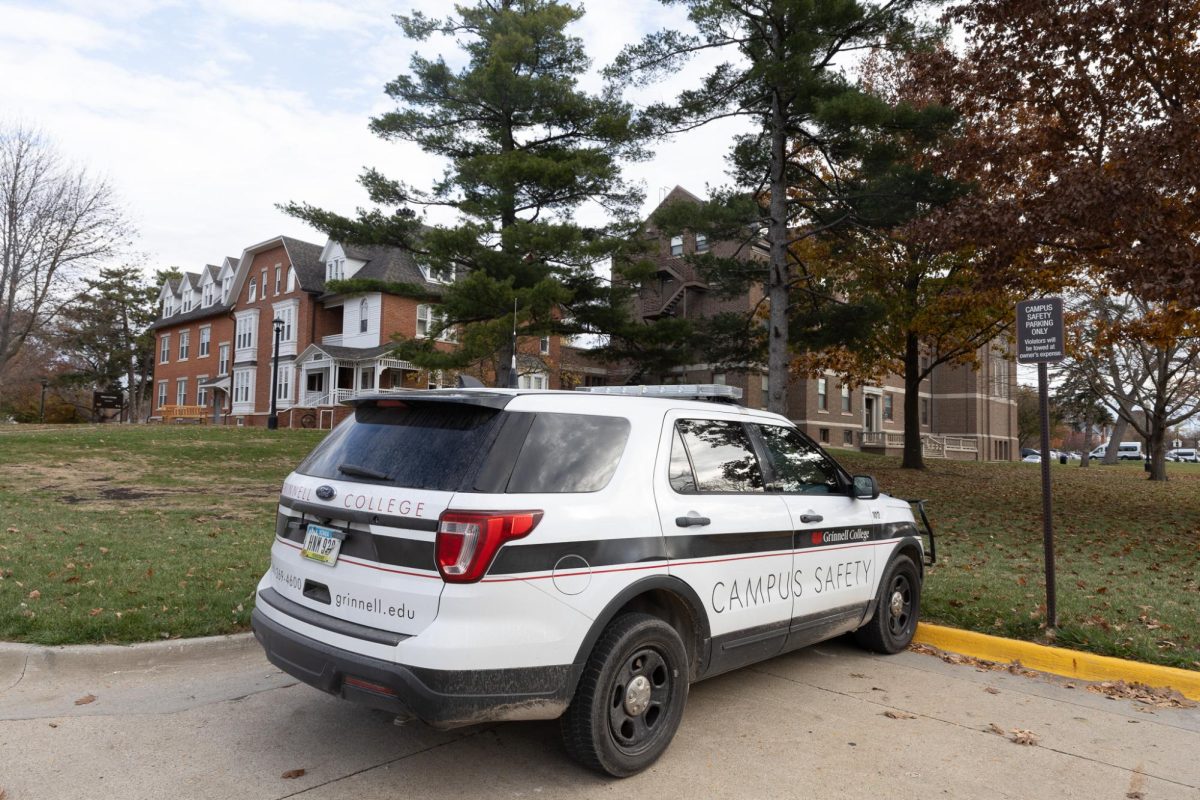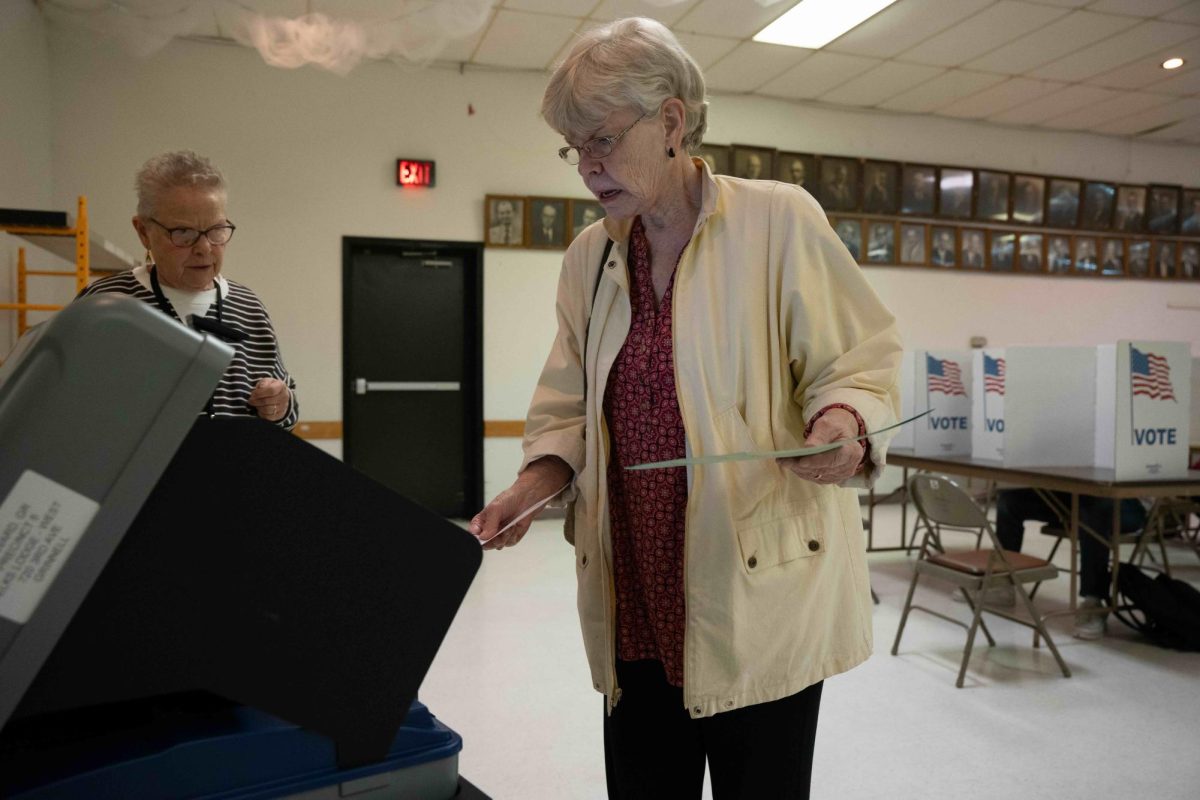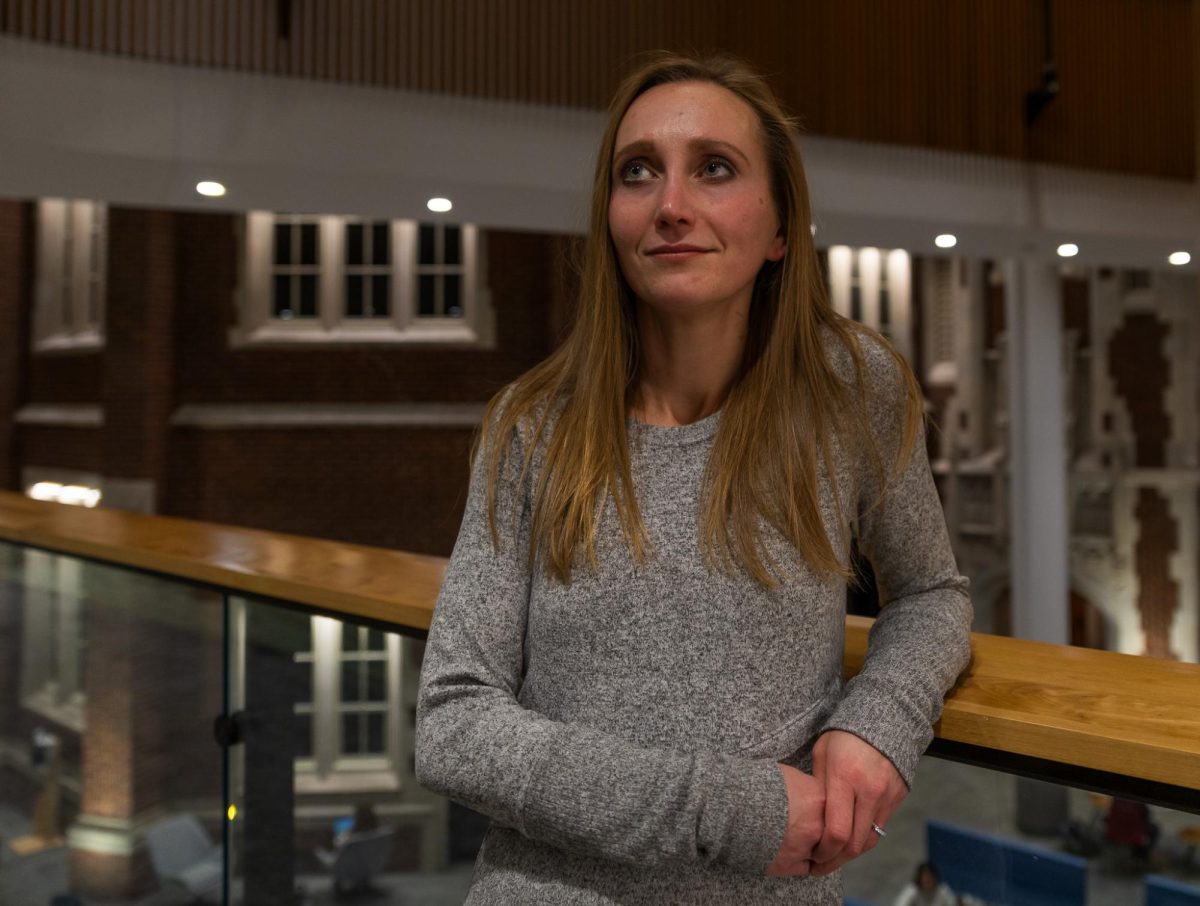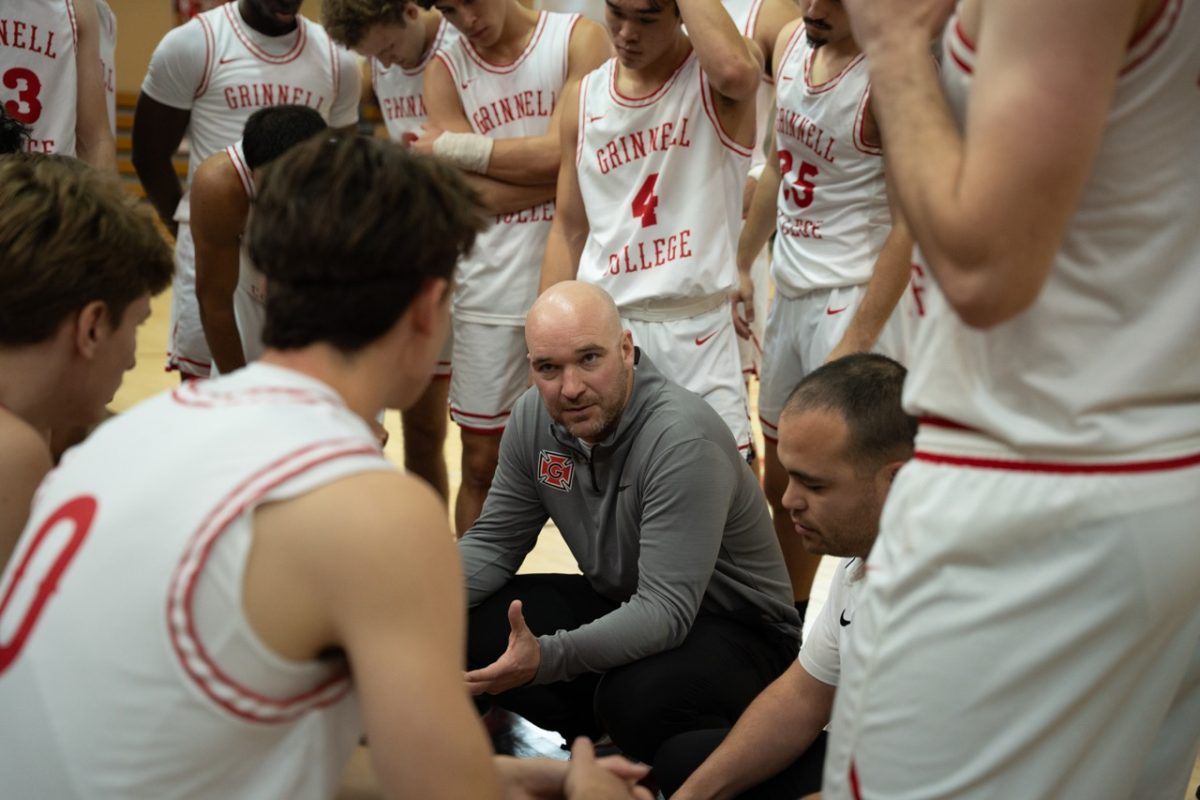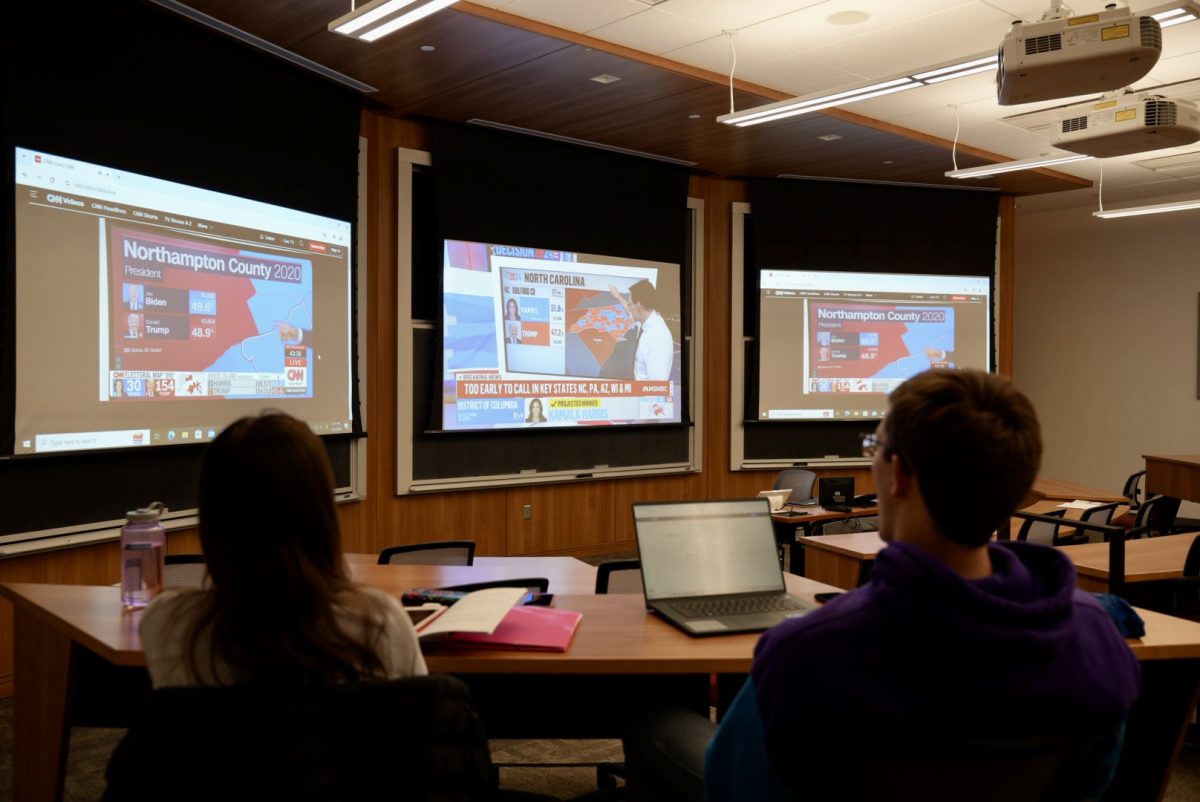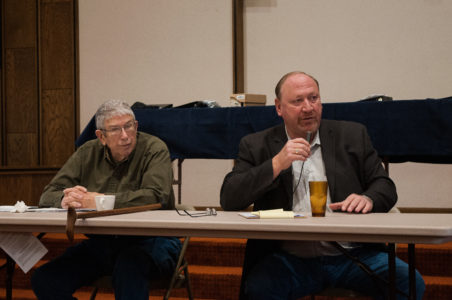
Terese Grant of the League of Women Voters opened the first of three Legislative Coffees planned for this spring. She requested first and foremost that questions remain respectful.
“I am so disheartened when I see what’s happening at the national level, how things have deteriorated so greatly,” she said. “I don’t think that’s who we are, who we want to be. I think that we can do better, and I think that you folks here in Grinnell will do better. We can disagree on everything and still have a positive dialogue and share our ideas.”
Along with the League of Women Voters, the Legislative Coffee was co-sponsored by the Grinnell Chamber of Commerce. Republicans Tim Kapucian, Iowa State Senator for District 38, and Dave Maxwell, who serves the 76th district in the Iowa House of Representatives, were invited to answer the questions of their constituents and speak on their work so far this term. The event, held on Feb. 3 at the First Presbyterian Church, will be repeated, with new questions and answers, on March 3 and April 7.
Maxwell and Kapucian opened the event with a recap of the past several weeks since the Iowa General Assembly went into session on Jan. 8. Both agreed that the year has taken a busy start, citing the recent $282 million water quality bill that passed both the House and Senate in January. With both politicians on transportation committees, Kapucian highlighted his work on a new “Scope of Practice” bill that would give local police domain on portions of interstates that affect their communities. He also commended the reduction in interstate accidents this winter, claiming it is a result of the now-mandatory blue and white lights on all snow plows.
After Maxwell and Kapucian summarized their work thus far in 2018, the floor was opened for constituents to ask questions and voice their concerns.
Among concerns raised were questions on the privatization of Medicaid, potential budget cuts to the Department of Human Services, the effect of privatization and vouchers on public schools, open-carry gun laws for schools and a reduction in the number of driver’s license stations.
Janet Carl, former Iowa state representative and writing instructor at Grinnell College, posed two questions to Maxwell and Kapucian. She asked, “Do you believe an adult seeking healthcare advice needs anybody to decide anything about that healthcare besides that adult’s doctor?”
Maxwell replied in the negative, noting possible exceptions related to health insurance approval and cases where a person cannot be held accountable for themselves.
The questions quickly became more pointed, with a follow-up question by Carl.
“When you go to the doctor is there anybody else in the room besides you and the doctor, besides medical personnel? … Why is the state legislature continually trying to insert itself into a woman and a doctor’s decision into whether a woman is going to have an abortion or not? When abortion is legal in this state. … Would you vote for the so called ‘personhood bill’ when it comes to the floor of one of your chambers?” she asked.
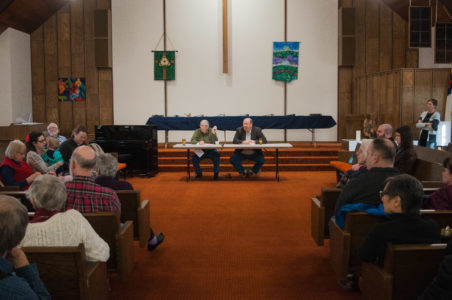
“For me, I would have no problem in not voting for it. … I just don’t feel that we have the right to control every aspect of a woman’s life,” Maxwell responded. “It’s legal, I don’t think that I should have to pay for it with tax [dollars], but at the same time, it’s not really my business what goes on there.”
Kapucian, though, stated that he endorsed a ban last spring that prohibits abortion past 20 weeks in the pregnancy and that he will maintain a pro-life position.
One major concern of the citizens in attendance was water quality.
A member of Poweshiek Cares voiced her concern over CAFOs, or concentrated agricultural feeding operations, claiming that “Poweshiek Cares has been talking to both of you [Senator Kapucian and Representative Maxwell] for the past four years on the impact of CAFOs on the quality of water, air, soil, life, and since then, at this point there are more than 10,000 CAFOs in our state.”
Despite the recent water quality bill which will redirect $282 million in state revenue to cleaning up waterways, audience members cited a study that predicted an estimated $4 billion would be necessary to correct the nitrate and phosphorus damage from concentrated animal agriculture. The representatives voiced their support for further legislation that would call for both tax increases and tax restructuring to redirect more money towards water safety.
Maxwell introduced the topic of the death penalty, which has not existed in Iowa since 1965. A recent bill would have brought it back, but was defeated in the Iowa House.
“The death penalty, I’m sure you all heard that died yesterday,” Maxwell said.
As the one-hour session came to a close, the legislators commented upon their meeting with constituents.
“I know we don’t agree on a lot of things,” Kapucian said. “But I like to hear what your opinions are and hopefully you respect ours.”
“Thank you guys for being respectful and pleasant, you know I do enjoy coming here. … I do appreciate talking to you all, and we do answer our emails,” Maxwell added.
The next Legislative Coffee will be held at the First Presbyterian Church on March 3.



